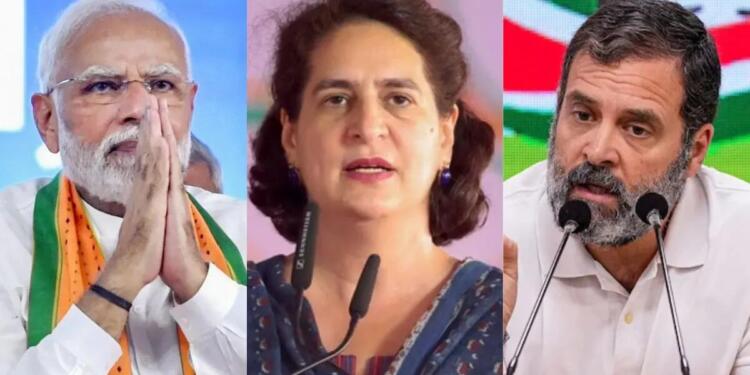On July 25, President Draupadi Murmu announced the renaming of two significant halls in Rashtrapati Bhavan. The Durbar Hall is now called Ganatantra Mandap, while Ashok Hall has become Ashok Mandap. This decision sparked various reactions, including a notable response from Congress leader Priyanka Gandhi Vadra.
Priyanka’s Perspective on the Renaming
When asked about the renaming, Priyanka offered a thought-provoking comment. She suggested that the concept of “Durbar” no longer exists, implying instead the presence of a “Shahenshah” or emperor. This remark ties into Priyanka’s previous references to Prime Minister Narendra Modi, whom she has often labeled as “Shahenshah.”
Significance of Rashtrapati Bhavan
The presidential residence holds immense importance as a national symbol and cherished heritage. The renaming aims to reflect this significance while aligning with contemporary values. Traditionally, the Durbar Hall hosts crucial events like National Awards presentations.
Priyanka’s “Shahenshah” Narrative
During the 2024 Lok Sabha Election campaign, Priyanka frequently employed the “Shahenshah” term. She argued that Modi, living in palaces, couldn’t grasp common people’s struggles. This narrative was Priyanka’s response to the Prime Minister’s habit of calling her brother, Rahul Gandhi, “Shahzaada” (prince).
Priyanka’s Defense of Rahul
Priyanka staunchly defended her brother against the “Shahzaada” label. She highlighted Rahul’s extensive 4,000 km walk from Kanyakumari to Kashmir, emphasizing his efforts to connect with ordinary citizens and understand their challenges. Priyanka’s passionate defense showcased her commitment to countering the opposition’s narrative.
Priyanka’s Campaign Strategy
Throughout the election campaign, Priyanka consistently used the “Shahenshah” narrative to criticize Modi’s governance style. She emphasized the perceived disconnect between the Prime Minister and the common people, using this rhetoric to appeal to voters who felt overlooked by the current administration.
Historical Context of “Durbar”
The term “Durbar” has historical significance, referring to courts and assemblies of Indian rulers and the British colonial administration. By renaming the Durbar Hall, the government aims to move away from colonial-era terminology and embrace more indigenous and democratic terms.
Priyanka’s Political Messaging
Priyanka’s comments on the renaming reflect her broader political strategy. By connecting the renaming to her “Shahenshah” narrative, she attempts to reinforce the image of an out-of-touch government. This approach aligns with her consistent efforts to position herself and the Congress party as champions of the common people.
Prime Minister’s Counter-Response
Responding to these characterizations, Modi cleverly reframed the narrative. He embraced the label, not as “Shahenshah” but as “Sehanshah” – one who tolerates. In a televised interview on May 13, he acknowledged enduring numerous criticisms, presenting this as a sign of strength and patience.
Public Reception of Priyanka’s Comments
The public’s reaction to Priyanka’s comments on the renaming has been mixed. While some view her remarks as astute political commentary, others see them as an attempt to politicize administrative decisions. This diversity of opinion reflects the complex political landscape in India.
Conclusion: Priyanka’s Impact on Political Discourse
The renaming of Rashtrapati Bhavan halls has ignited a broader political discourse. Priyanka’s comments and Modi’s responses showcase the ongoing battle of narratives in Indian politics. As the debate continues, it reflects the complex interplay between historical symbolism and contemporary political rhetoric.
ALSO READ: “Arey mahila ho, kuch jaanti nahi ho?”, questioned Nitish Kumar

























